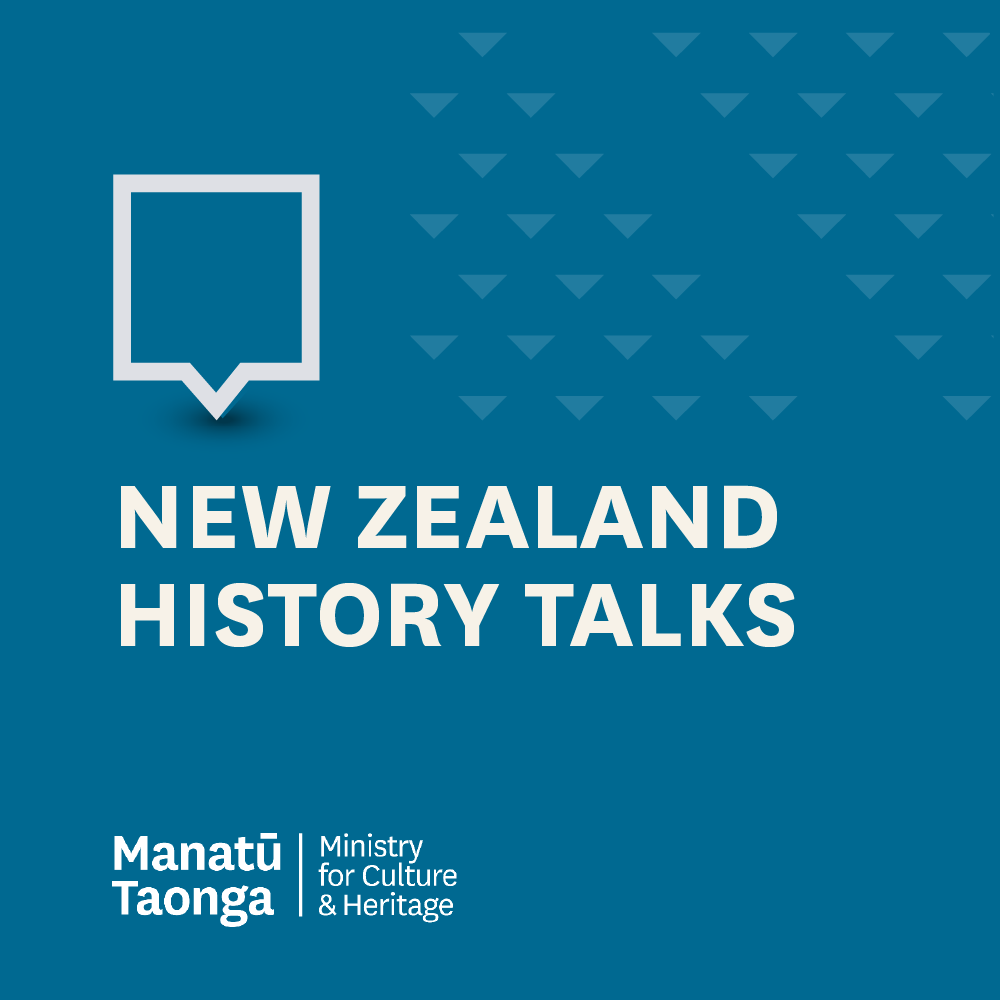Episodes
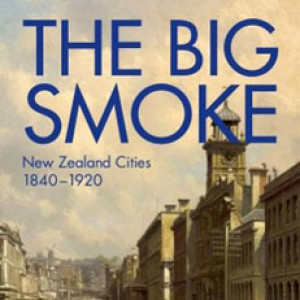
Wednesday Apr 19, 2017
Reflections on the Big Smoke
Wednesday Apr 19, 2017
Wednesday Apr 19, 2017
In this presentation Ben Schrader offers some reflections on the writing of his recent book The Big Smoke: New Zealand Cities, 1840-1920 (Bridget Williams Books, Wellington, 2016).
Why did he write the book and how did he go about it? What were the challenges and rewards of writing a broad story in a narrowly researched field? He then reveals some of the most important findings from the project and suggests ways they increase our understanding of New Zealand’s past. Finally, he ponders how the work might shape future research. Might, for example, his focus on the lived experience of city dwellers suggest social history is making a long-awaited comeback?
Recorded at the National Library of New Zealand, 5 April 2017.
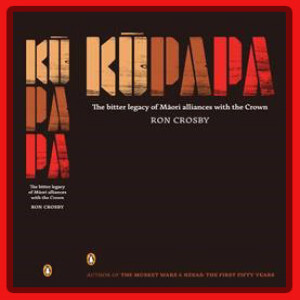
Monday Dec 14, 2015
KŪPAPA - the bitter legacy of Māori alliances with the Crown
Monday Dec 14, 2015
Monday Dec 14, 2015
The Treaty of Waitangi struck a bargain between two parties - the Crown and Māori. Its promises of security however, were followed from 1845 to 1872 by a series of volatile and bloody conflicts commonly known as the New Zealand Wars. Many people believe that these wars were fought solely between the Crown and Maori, when the reality is Maori aligned with both sides, resulting in three participants from differing viewpoints.
In this episode, lawyer and writer Ron Crosby discusses his most recent book, Kūpapa.
Introduction by Chief Historian Neil Atkinson. Recorded at the Ministry for Culture and Heritage, 7 October 2015.
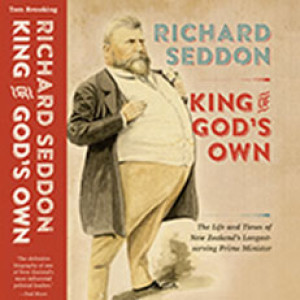
Wednesday Sep 16, 2015
Richard Seddon: King of God’s Own
Wednesday Sep 16, 2015
Wednesday Sep 16, 2015
Tom Brooking is Professor of History at the University of Otago. He specialises in New Zealand rural and environmental history, political history and historical links between New Zealand and Scotland. He is an author, co author and biographer of numerous books and publications, including the 2014 biography: Richard Seddon King of God's Own.
Although he was no saint Seddon was a far more complex and multi-faceted character than the often rather one-dimensional revisionist portraits within our historical literature. In this presentation, Tom Brooking will attempt to explain how he tried to challenge this increasingly orthodox view by attempting to understand Seddon according to the values of his own times rather than condemning him from a comfortable, presentist distance.
Introduction by Chief Historian Neil Atkinson. Recorded at the Ministry for Culture and Heritage, 2 September 2015.

Thursday Aug 06, 2015
Dr Steven Loveridge: New Zealand Society at War
Thursday Aug 06, 2015
Thursday Aug 06, 2015
Steven Loveridge holds a PhD in history from Victoria University of Wellington and has researched, taught and written on various aspects of the First World War. This talk explores the dynamics of the mobilisation process and considers what it might add to our comprehension of wartime New Zealand.
Introduction by Senior Historian Gavin McLean, and recorded at the Ministry for Culture and Heritage, 6 August 2015.

Thursday Jul 02, 2015
Dr Grant Morris: ’Legal Villain’
Thursday Jul 02, 2015
Thursday Jul 02, 2015
Dr Grant Morris is a Senior Lecturer in Law at Victoria University of Wellington. In this podcast he explores James Prendergast, the most infamous figure in New Zealand’s legal history. Known mainly for his condemnation of the Treaty of Waitangi as “a simple nullity” in 1877, Prendergast was a highly respected lawyer and judge and his good reputation remained intact until the 1980s, when the Treaty of Waitangi finally returned to the centre of New Zealand political life. The more the Treaty has been celebrated, the more Prendergast has been condemned. Who was this legal villain? Was he really a villain at all?
Introduciton by Chief Historian Neil Atkinson, and recorded at the Ministry for Culture and Heritage, 1 July 2015.
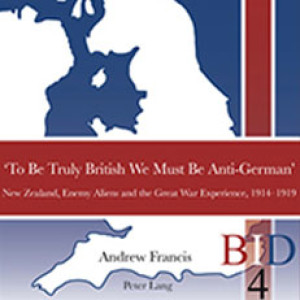
Thursday Jun 04, 2015
Andrew Francis: Enemy aliens and the New Zealand experience
Thursday Jun 04, 2015
Thursday Jun 04, 2015
This presentation by Andrew Francis discusses a still under-researched aspect of New Zealand’s war on the home front. It assesses the government, press and public’s conduct interwoven with Germans settlers’ wartime experiences. It considers the government’s task in attempting to safeguard the dominion’s security while remaining fair and just to New Zealand’s German communities; it analyses the role of the press, in particular those who fostered an increasingly hostile anti-German spirit; and it discusses the extent to which the public’s reaction to the ‘enemy in our midst’ was both a pseudo-patriotic response to wartime conditions and the culmination of an anti-foreigner campaign developed throughout the Victorian and Edwardian eras.
Introduction by Imelda Bargas, Senior Historian at the Ministry for Culture and Heritage. Recorded at the Ministry for Culture and Heritage, 3 June 2015.
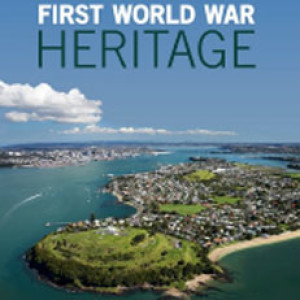
Thursday May 07, 2015
Imelda Bargas and Tim Shoebridge: New Zealand’s First World War Heritage
Thursday May 07, 2015
Thursday May 07, 2015
Imelda Bargas and Tim Shoebridge are Senior Historians in the Ministry for Culture and Heritage's History Group.
In this talk Imelda and Tim will explain how they came to work on their book, New Zealand's First World War Heritage and some of the challenges they faced putting it together. They'll also explore the themes covered in the book, using some of their favourite stories and sites.
Recorded at the Ministry for Culture and Heritage, 6 May 2015.
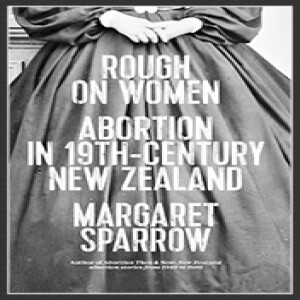
Thursday Apr 02, 2015
Margaret Sparrow: Rough on Women Abortion in 19th Century New Zealand
Thursday Apr 02, 2015
Thursday Apr 02, 2015
Dame Margaret Sparrow has had a long career in general and reproductive health. She was awarded an MBE in 1987, the New Zealand Suffrage Centennial Medal in 1993, and the DCNZM for services to medicine and the community in 2002, which in 2009 became a DNZM.
The women who had abortions in 19th century New Zealand are all long dead and little is known of their shortened lives. Most of what we know about them comes from coroners’ reports and newspaper accounts, and in many cases we know more about the abortionists than the women themselves. Those who survived had engaged in criminal activity so they were unlikely to talk about it. Abortion was not written about or mentioned in their correspondence to family and friends.
The information we have is biased towards events with a tragic ending but even this gives us some insight into the lives of ordinary women. At a time when contraception was frowned upon by the medical profession women obtained abortions by whatever means they could, despite the dangers of poisoning, haemorrhage and infection. Abortionists did their work despite the threat of long prison sentences.
Recorded at the Ministry for Culture and Heritage, 1 April 2015. Introduction by Neil Atkinson of the Ministry for Culture and Heritage
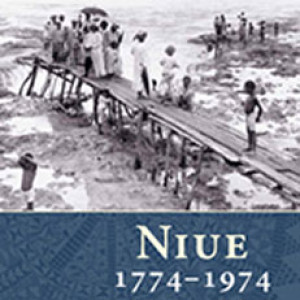
Thursday Mar 26, 2015
Thursday Mar 26, 2015
Historian Margaret Pointer discusses why 150 Niueans were accepted for service in the Māori Contingent, their experiences in Auckland, Egypt France and England and what life was lie for the men returning home.
Recorded at the Ministry for Culture and Heritage, 6 August 2014.
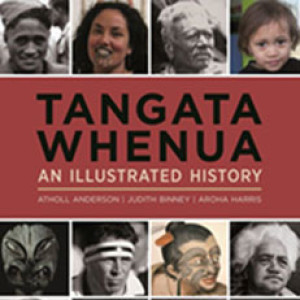
Thursday Mar 19, 2015
Aroha Harris: New Perspectives on Māori History
Thursday Mar 19, 2015
Thursday Mar 19, 2015
Lecturer in History at the University of Auckland, Aroha Harris (Te Rarawa, Ngāpuhi) talks about new perspectives on Māori history. Her latest book 'Tangata Whenua: An Illustrated History' is a collaboration between Harris, Judith Binney and Atholl Anderson and is published by Bridget Williams Books.
Recorded at Ministry for Culture and Heritage, 4 March 2015. Introduction by Ripeka Evans.
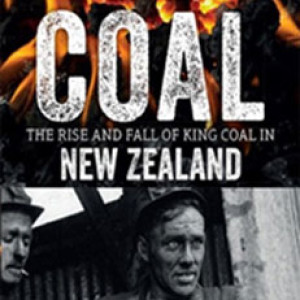
Monday Nov 10, 2014
Coal- the Rise and Fall of King Coal in New Zealand
Monday Nov 10, 2014
Monday Nov 10, 2014
Recorded on 5 November 2014. Historian Matthew Wright discusses his recent publication on the chequered history of coal.
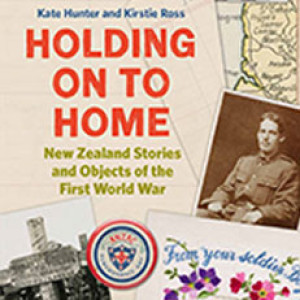
Monday Nov 10, 2014
Kate Hunter and Kirstie Ross: Holding On To Home
Monday Nov 10, 2014
Monday Nov 10, 2014
Kate Hunter and Kirstie Ross discuss their recent publication Holding On To Home: New Zealand Stories and Objects of the First World War.
Recorded at the Ministry for Culture and Heritage, 1 October 2014.

Monday Nov 10, 2014
New Zealand English: is there more here than meets the eye and ear?
Monday Nov 10, 2014
Monday Nov 10, 2014
Recorded on 3 September 2014. Language expert Dianne Bardsley discusses geographic and social conditions that have produced the distinctive form of New Zealand English.

Monday Nov 10, 2014
Judgments of all Kinds: Economic Policymaking in New Zealand 1945-84
Monday Nov 10, 2014
Monday Nov 10, 2014
In this recording from 2 July 2014 Jim McAloon, Associate Professor of History, Victoria University, sheds light on the perceptions, ideas, and competing interests which shaped the views and actions of ministers and officials in managing a small externally dependent economy in the decades following the Second World War.

Monday Nov 10, 2014
'Captain Kindheart’s Crusade'
Monday Nov 10, 2014
Monday Nov 10, 2014
In this talk recorded on 4 June 2014 Nancy Swarbrick discusses pet culture in New Zealand in the context of the international movement that began in the nineteenth century and still resonates today .
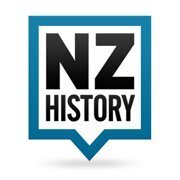
Wednesday Apr 09, 2014
A Tasman tale?: New Zealand's Depression and Australia, 1930-39
Wednesday Apr 09, 2014
Wednesday Apr 09, 2014
Seminar presented by Malcolm McKinnon at the Ministry for Culture and Heritage on 2 April 2014.
In this talk Malcolm McKinnon discusses ways in which a trans-Tasman frame of reference expands our understanding of the economic depression in 1930s New Zealand. Investors moved their money, workers their labour, politicians their laws and economists their advice back and forth across the Tasman.
Malcolm McKinnon is a Wellington historian who is working on a study of the 1930s depression in New Zealand. He is a former writer and theme editor for Te Ara, was the editor of the New Zealand historical atlas (1997) and has published books on New Zealand foreign relations, immigration history and economic history.

Friday Mar 07, 2014
The History of Gangs in New Zealand
Friday Mar 07, 2014
Friday Mar 07, 2014
Seminar presented by Dr Jarrod Gilbert at the Ministry for Culture and Heritage on 5 March 2014.
Rape, murder, violence and drugs: gangs are synonymous with them all. Despite having a significant presence in New Zealand since the 1950s, though, our gangs have been under-researched and remain poorly understood. One reason for this is the difficulty of doing fieldwork.
This seminar looks at the problems of researching gangs, but also the problems encountered when research findings clash with popular and official understandings.
Between 2002 and 2010 Jarrod Gilbert undertook the most comprehensive study ever done on gangs in New Zealand, and in 2013 he published Patched: The History of Gangs in New Zealand. Patched won the Peoples Choice category at the 2013 New Zealand Post Book Awards and was a finalist for best non-fiction book.
Jarrod lectures at the University of Canterbury and is the lead researcher at Independent Research Solutions. He is currently working on a book titled Murder: A New Zealand History.

Monday Nov 18, 2013
The White Ships: New Zealand's First World War Hospital Ships
Monday Nov 18, 2013
Monday Nov 18, 2013
Seminar presented by historian Gavin McLean at the Ministry for Culture and Heritage on 6 November 2013.
In 1915 the New Zealand government converted the liners Maheno and Marama into state-of-the art floating hospitals. Fitted out partly with funds raised by high profile public appeals, the ships had a busy war, eventually carrying 47,000 people. Painted distinctively in accordance with international requirements, they were the public face of our merchant marine's war, with the Maheno's crew making a direct civilian contribution to the Gallipoli campaign. Not everything went according to plan. There were tensions between the governor and ministers and shipboard disputes between army officers and mariners and between doctors and nurses. The political left also muttered about profiteering by the Union Steam Ship Company. Come along and hear the story of New Zealand's white ships.
Gavin McLean is a senior historian in the History Group of the Ministry for Culture and Heritage. He is about to start on writing a book on New Zealand's First World War at sea.

Wednesday Oct 02, 2013
The Great Strike of 1913: ‘Industrial War’ in ‘the Workers’ Paradise’
Wednesday Oct 02, 2013
Wednesday Oct 02, 2013
Seminar presented by historian Peter Clayworth at the
Ministry for Culture and Heritage on 2 October 2013.
The Great Strike of 1913 was one of the largest and most disruptive in New Zealand’s history. From October 1913 to January 1914 a strike wave swept across the country, involving about 14,000 workers, hundreds of police and thousands of special constables.
In this talk Peter Clayworth gives an overview of the strike, with a closer look at events in Wellington. He examines some of the questions the events of 1913 raise concerning the nature of New Zealand society on the eve of the Great War. Peter also briefly discusses events being organised to commemorate the strike centennial.
Peter works as a writer for Te Ara the encyclopedia of New Zealand. He has a PhD in history from the University of Otago. He is a committee member of the Labour History Project and is currently involved in organising a series of commemorative events for the centennial of the 1913 strike. He is also working on a biography of Red Fed leader Pat Hickey. Peter hails from a family of mechanics in Stoke, Nelson, and is descended from a long line of West Coasters.

Friday Sep 06, 2013
Tramping in New Zealand, a History
Friday Sep 06, 2013
Friday Sep 06, 2013
Seminar presented by historians Chris Maclean and Shaun Barnett at the Ministry for Culture and Heritage on 4 September 2013. Introduced by Jock Phillips
New Zealand offers some of finest tramping anywhere with some of the most striking scenery on the planet, arguably the best hut and track network in the world, a small population, no dangerous wild animals, poisonous snakes or toxic spiders, good access, 14 national parks, 19 forest parks, 10 conservation parks, and no entry fees. Around these attributes a uniquely New Zealand culture of tramping has developed, reflecting broader national characteristics. In this presentation we will talk about the history of tramping in New Zealand, and also about the process of researching and writing a book on the subject.
Shaun Barnett began tramping as a teenager in Hawke's Bay during the 1980s and has since tramped extensively around New Zealand and also overseas. In 1996, he became a full-time outdoors writer and photographer. He edited Wilderness magazine for three years, has authored several tramping guidebooks, and served on the Federated Mountain Clubs executive for nearly 10 years. Shaun's most recent book, Shelter from the Storm, The Story of New Zealand's Backcountry Huts, co-authored with Rob Brown and Geoff Spearpoint, is a finalist at this year's NZ Post Book Awards.
Chris Maclean graduated from Victoria University with a B.A. in History, and has since made a career out of writing historical books. His book Tararua, highlighted the history of a previously underrated mountain range, while his subsequent book Kapiti won a Montana Book Award in 2000. A keen tramper and sea kayaker, Chris has wide experience of the New Zealand outdoors, and his most recent book Stag Spooner, Wild Man from the Bush, is also a finalist at this year's NZ Post Book Awards.

